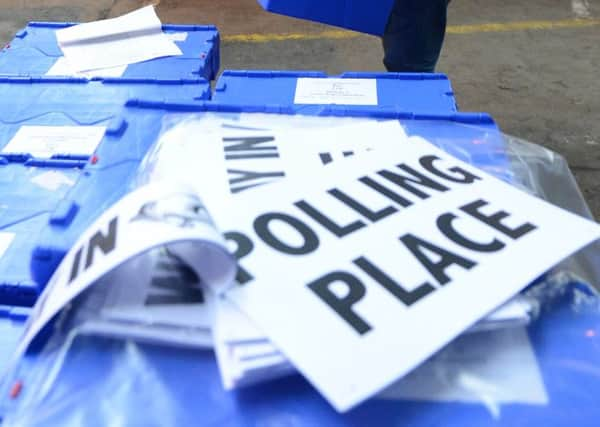Independence: Murderers lose court battle for vote


Convicted murderers Leslie Moohan and Andrew Gillon, who are serving life sentences, had claimed the ban breaches their human rights.
Advertisement
Hide AdAdvertisement
Hide AdBut the Supreme Court dismissed the claims in London yesterday.
The ruling was welcomed by the Scottish Government and opposition parties who had warned a defeat would have had “disastrous consequences”.
But the issue has split opinion in Scotland, with other political leaders arguing some inmates should get the vote to help with their rehabilitation. Prisoners in most European countries can already vote. The prisoners’ claims had already been dismissed by judges north of the Border.
Supreme Court president Lord Neuberger told lawyers the prisoners’ appeals were dismissed after a day-long hearing.
A spokeswoman for the Scottish Government said: “We welcome the decision of the Supreme Court to dismiss today’s appeal. This confirms that the approach taken in the Scottish Independence Referendum (Franchise) Act 2013 is compatible with European Convention on Human Rights (ECHR) and European Union (EU) law, and that convicted prisoners currently serving a custodial sentence will not be able to vote in the referendum.”
Scottish Conservative justice spokeswoman Margaret Mitchell added: “This appeal, had it been successful, would have had disastrous consequences, not least for the proposed EU referendum in 2017. We remain resolute in our opposition to granting the vote to prisoners.”
Lord Neuberger said yesterday the reasons for the decision would be given at a later date.
A panel of seven Supreme Court justices analysed provisions contained in the Scottish Independence Referendum Act 2013. They had considered a series of legal questions, including whether provisions prohibiting prisoner voting were incompatible with the ECHR and whether they breached the common law right to vote.
Advertisement
Hide AdAdvertisement
Hide AdThe justices were told both inmates want to vote in the referendum on 18 September but are not eligible under the Franchise Act. The prisoners, who were each convicted of murdering a man, are being held in Scotland.
Neither was at yesterday’s Supreme Court hearing. Moohan is not eligible for release until 2023 while Gillon is not eligible for release until later this year.
Some Scottish politicians backed the call for some prisoners to be handed the vote, Green party leader Patrick Harvie and Liberal Democrat Alison McInnes both proposed changes to the franchise for the referendum which would have allowed short-term prisoners the vote. They argued that this would help with their rehabilitation.
When the Court of Session in Scotland kicked out Moohan and Gillons’ case at the end of last year, Mr Harvie described it as a “missed opportunity”.
Croatia, the Czech Republic, Denmark, Finland. Ireland, Latvia, Lithuania, Macedonia, Montenegro, Serbia, Spain, Sweden, Switzerland and Ukraine all give prisoners the vote.